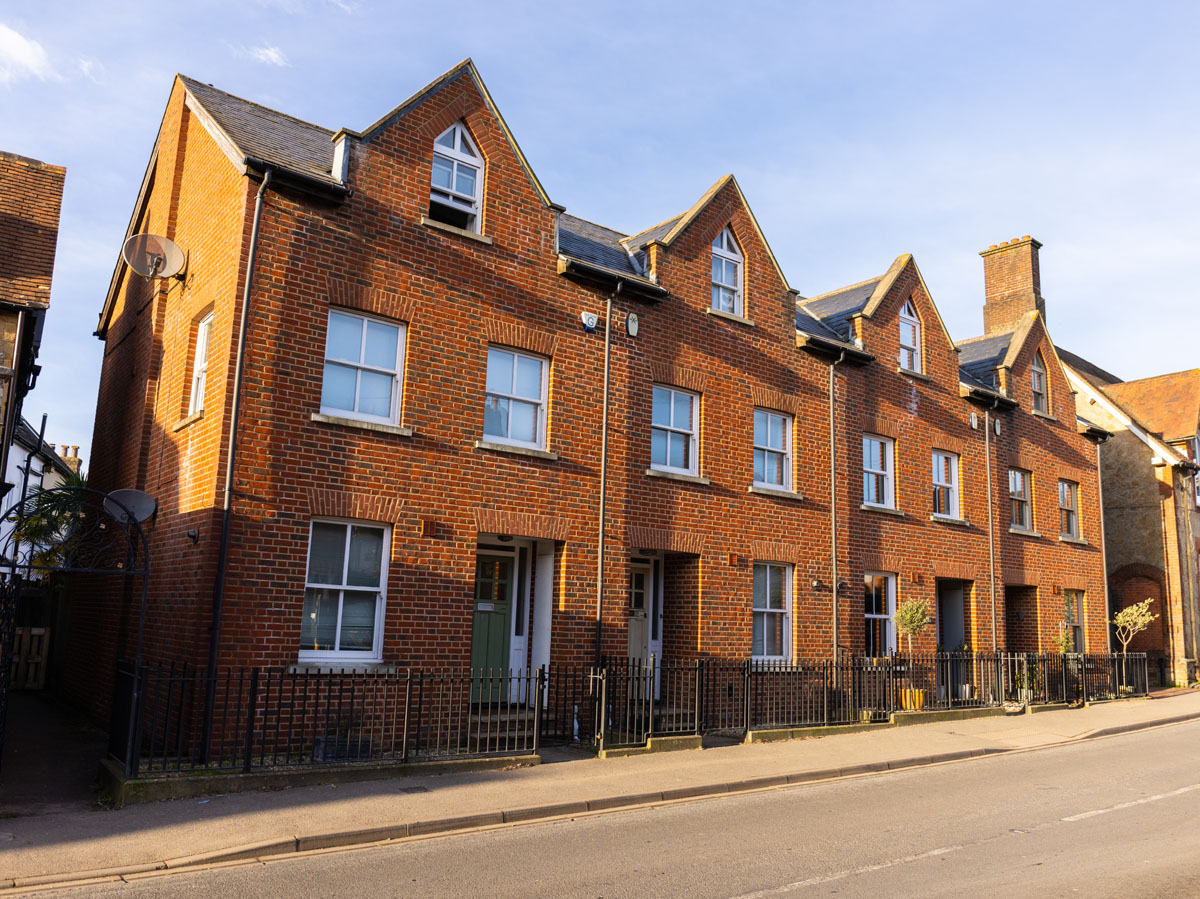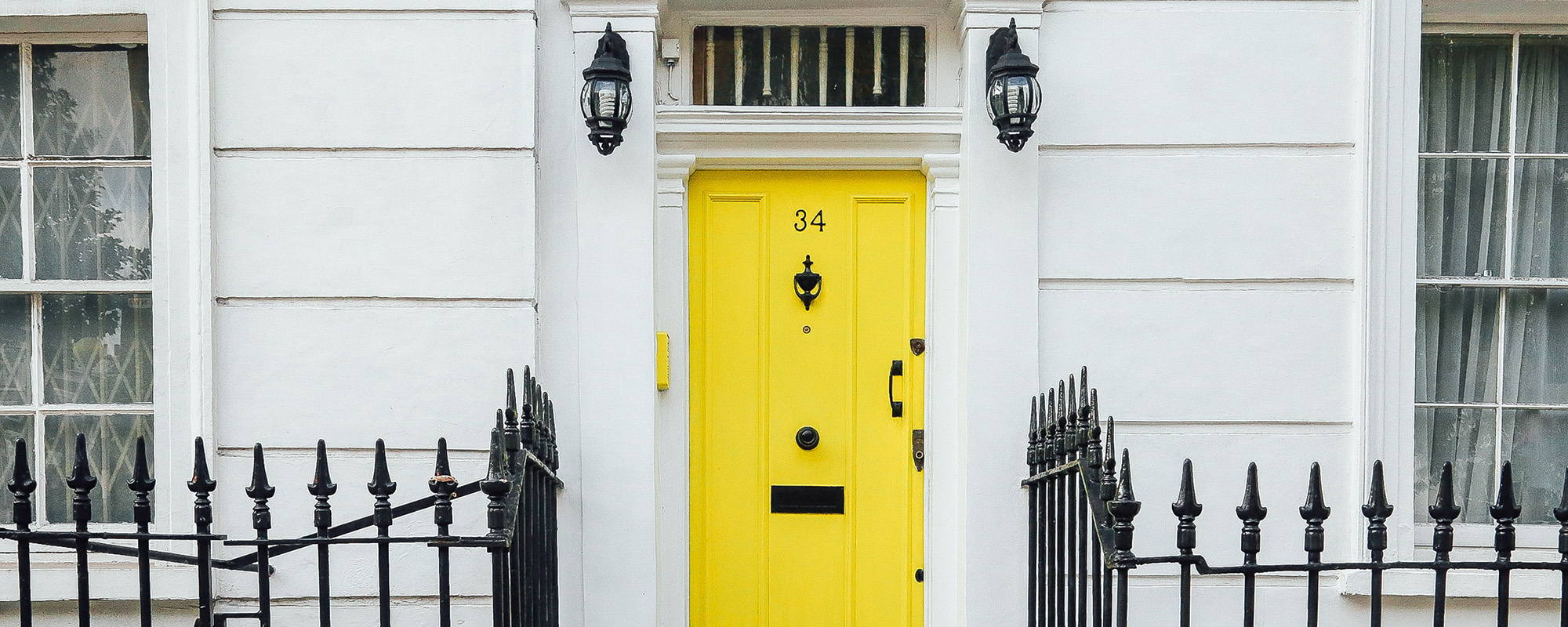
Our Second Charge Mortgages
Book an appointment with our Second Charge mortgage specialist 020 3989 9095
FREE Second Charge Mortgage Advice
“We know that time is precious for you, we can work around your availability while searching for the most competitive mortgage products and overseeing your mortgage application from start to finish”.
Jonathan Smith – (CeMAP, BA Hons, Aff SWW, CeRER)
There may be a time when you want to borrow a sum of money without having to apply for an unsecured loan or remortgage your property. As long as you’re a homeowner with an existing mortgage, a second charge mortgage may be the ideal solution for you.
At Trinity Finance, we’re available to discuss your funding requirements and help you decide if a second charge mortgage is the right option for you. Depending on the amount you wish to borrow and your circumstances, we can search for the best deal from a second charge lender or assist you with an alternative form of funding.
What is a second charge mortgage?
For your existing mortgage, your lender has the first charge against your property, meaning it has priority when being repaid for any loan amount that is still outstanding should your property be sold. A second charge mortgage is taken out in addition to your first mortgage via a different lender. As its name suggests, the lender places the second charge against your property and is, therefore, second in line to recoup its funds after your first mortgage loan has been repaid.
This secured loan uses the equity in your property as collateral. The amount you can borrow is based on the equity available as well as your income. You can usually borrow a minimum of £1,000 with the limit as to how much you can borrow depending on your equity and the lender’s restrictions. You must get permission from your existing lender first and then fulfil the second lender’s criteria so that they’re satisfied you can comfortably afford to repay both loans.
You don’t need to live in the property you want to have a second charge mortgage on. If you own a second home or have a buy-to-let investment with equity, for example, this can be used for your second charge mortgage
The rates
As the lender for your second charge mortgage has less priority than the first lender, they risk losing money if there are insufficient funds to repay the outstanding loan once the first loan has been repaid. Due to this increased risk, the interest rate is likely to be higher for your second charge mortgage.


Why not just remortgage?
With a remortgage, you switch your existing mortgage to a new one with either the same lender or a new one. This lets you take advantage of lower rates, more flexible terms and the ability to release some of the equity tied up in your home. Remortgaging is a popular option although there are some instances when a second charge mortgage can be more beneficial:
- You may have a very good deal for your existing mortgage. You may benefit from a very competitive or discounted rate with your current mortgage but if you remortgage to access some of your equity, you stand to lose that and risk paying a much higher rate. Your mortgage term may also be extended, meaning it will take even longer for you to own your property outright.
- You may be liable for an early repayment charge. Your lender may penalise you for switching to a new mortgage deal. Early repayment charges can be very high so you need to check this with your lender before making a decision.
- Your credit rating may have gone down. Since you took out your original mortgage, your circumstances may have changed and you now have a lower credit rating. Your lender will view this as more of a risk and charge you a higher interest rate if you remortgage. Likewise, if your employment status has changed since you applied for your mortgage, such as becoming self-employed, your lender will view that as an increased risk and insist on charging a higher rate.
When faced with any of these issues, a second charge mortgage can make more sense. As it is completely separate from your first mortgage, the higher interest rate is only payable on the loan amount for the second mortgage.
Our mortgage brokers, located throughout Kent, London and Edinburgh, can check the details of your existing mortgage and find out what alternative deals are available from your lender. If your credit rating is still good, you’re not liable for an early repayment charge and your lender can offer a competitive deal, our expert brokers can handle the remortgage process for you. If, on the other hand, a second charge mortgage is better suited to your circumstances, they can search the market for the best deal available and secure it quickly for you. To discuss the various options at your disposal, get in touch with one of our mortgage specialists on 01322 907 000. Alternatively, send an email to us at info@trinityfinance.co.uk or an enquiry via our contact form and we will reply to you as quickly as possible.
The need for a second charge mortgage
A second charge mortgage lets you unlock the potential in your home by way of borrowing a sum of money based on its equity. You may wish to carry out some home improvements, go on the holiday of a lifetime, buy a holiday home, invest more money in your business or pay for a special event, such as a wedding. No matter what your reasons for borrowing these funds, a second charge mortgage provides an alternative to remortgaging or using unsecured lending, such as a personal loan.
We’ve mentioned the reasons for choosing this route over remortgaging but there are benefits over unsecured finance too. An unsecured loan, whilst not putting your property at risk, is likely to cost you more with higher rates. This type of funding can also be harder to get if you have a bad credit rating or are self-employed.
How much can you borrow?
As mentioned above, the amount you can borrow is based on the equity available in your property. For example, if your property is valued at £250,000 and you still owe £150,000 for the mortgage loan, you have £100,000 equity. This is the figure the lender will use as collateral. The lender will also factor in your income as well as your credit history and any other loan commitments when determining how much they’re prepared to lend you. Many cap the amount you can borrow to a percentage of the equity held in your property, such as 75% or 80%.
The lender needs to see proof that you can comfortably afford the repayments on top of those for your first mortgage with a buffer to cover your normal living expenses. As with your first mortgage, you will have the option to repay the second charge mortgage over a long term, such as 25 years. As you’re spreading the payments over a long period, this means you can benefit from lower monthly repayments than if you opted for a shorter term.
What happens when you move to another property?
If you wish to move and sell your home, your original mortgage has to be repaid first. When this has been done, your second charge mortgage needs to be repaid unless your lender allows you to transfer it to your new property.
The benefits and drawbacks of having a second charge mortgage
There are both advantages and disadvantages to consider before deciding whether to proceed with a second charge mortgage.
Benefits
- You can keep your current mortgage. This is beneficial if you have a good deal with low rates that you’d lose if you were to remortgage.
- You won’t be liable for an early repayment charge that you may have to pay if you remortgage.
- Your circumstances may have changed, such as becoming self-employed or having a lower credit rating. This can negatively affect a remortgage deal so that you have to pay higher rates. This way, you only pay a higher rate for the second charge mortgage.
- Your current mortgage term doesn’t have to be extended.
- Your current lender may not be able to offer you any alternative products that are cheaper than a second charge mortgage.
- It’s usually easier to be accepted for a secured loan than an unsecured one. This is good if you are self-employed or have a low credit rating.
- The interest rate is likely to be lower than that for an unsecured loan.
- Securing a second charge mortgage is usually faster than the process for a first mortgage so you can look forward to receiving your funds fairly quickly.
Drawbacks
- You have two mortgages to repay.
- The interest rate is likely to be higher than the rate for your original mortgage.
- Choosing a long term means you can end up paying a lot of interest overall.
- As the debt is secured against your home, you risk it being repossessed if you don’t keep up with the repayments.
- If you move home, you have to repay both mortgages.
Borrow extra funds with a second charge mortgage
A second charge mortgage is a niche product and, at Trinity Finance, we work closely with specialist lenders providing this option. Our qualified mortgage brokers can search for the best deal for you depending on your needs, whether you prefer a fixed or variable rate, the ability to make overpayments without being penalised and a short or long term.
Before you begin the process, we will check the details of your current mortgage and ascertain what other deals your existing lender can offer you. If you won’t face an early repayment charge and your financial situation hasn’t changed, remortgaging may be the best option for you. Alternatively, your lender may be able to offer a new deal that works out cheaper than a second charge mortgage.
The amount of money you want to borrow may also determine the best financial product for you. For example, when looking to consolidate your debts, using credit cards with a low interest rate is worth considering. An unsecured loan, such as a personal loan, can be better if you only wish to borrow a small amount as this doesn’t put your home at risk.
Give us a call on 01322 907 000 to discuss the options available to you. Our mortgage specialists will look at all of the alternatives and determine which is best suited to your needs and financial situation. When you’re ready to proceed, we will find a competitive deal for you and begin the application process. Second charge mortgages are usually approved fairly quickly so you can look forward to having the funds readily available to use in a short time. To contact us out of hours, simply send an email to us at info@trinityfinance.co.uk or an enquiry via our contact form and one of our mortgage consultants will reply to you as quickly as possible.


